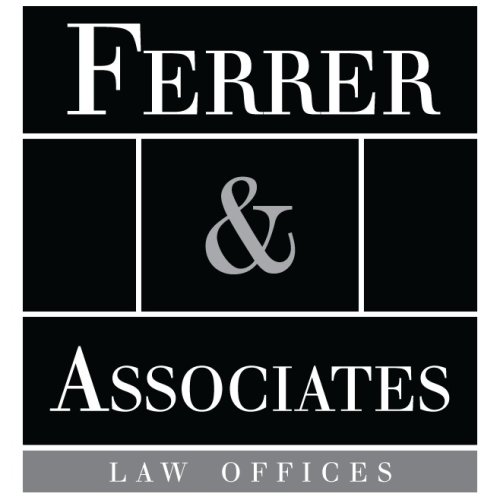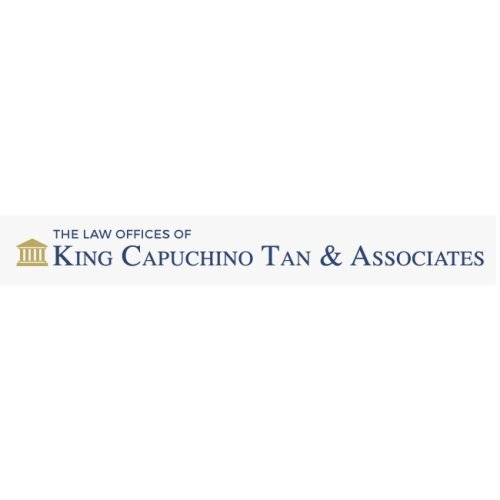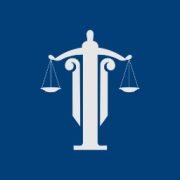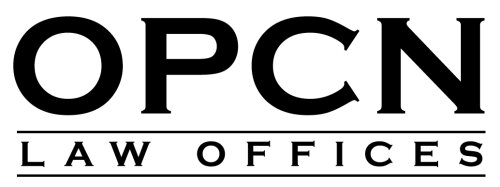Best Mining Law Lawyers in Quezon City
Share your needs with us, get contacted by law firms.
Free. Takes 2 min.
List of the best lawyers in Quezon City, Philippines
About Mining Law in Quezon City, Philippines
Mining law in Quezon City, Philippines regulates the exploration, extraction, and utilization of mineral resources within the city’s jurisdiction. As an urban center, Quezon City’s mining activities are typically limited and strictly regulated by both local and national laws, with an emphasis on environmental protection, land use planning, and community welfare. The governance of mining in Quezon City is influenced by the Philippine Mining Act of 1995 and local ordinances that address permits, safety, environmental compliance, and zoning restrictions. In urban areas like Quezon City, mining activities are often scrutinized to ensure public safety, environmental sustainability, and adherence to community standards.
Why You May Need a Lawyer
There are several reasons why individuals or businesses in Quezon City may require legal assistance in the field of mining law. Here are some common situations:
- Understanding complex permitting and regulatory requirements before starting or investing in mining activities.
- Resolving land disputes related to mineral resources, especially when ownership or jurisdiction is unclear.
- Navigating compliance with environmental laws, such as environmental impact assessments and pollution controls.
- Addressing disputes or violations involving mining rights, safety regulations, or contractual obligations.
- Representing local communities affected by mining activities, including issues related to health, safety, and social justice.
- Responding to enforcement actions or penalties issued by local or national agencies.
- Assisting with the transfer of mining rights or interests to another party.
- Mitigating the risks of criminal or civil liability arising from alleged unlawful mining or environmental harm.
Local Laws Overview
Mining activities in Quezon City are governed by a combination of national and local legislation. The most significant law at the national level is Republic Act No. 7942, also known as the Philippine Mining Act of 1995. This law sets the standards for licensing, environmental protection, ownership, and revenue sharing related to mining operations across the country.
Locally, Quezon City has its own ordinances and zoning regulations that further restrict or regulate mining activities within its urban and residential zones. The city government requires mining operators to secure necessary permits from both national (Department of Environment and Natural Resources or DENR) and local agencies. Furthermore, environmental compliance certificates, community consultations, and adherence to land use plans are crucial prerequisites. Typically, large-scale mining is rare in Quezon City, but small-scale quarrying and extraction activities may occur, all of which are subjected to review under local ordinances and must prioritize public safety and environmental integrity.
Violations can result in suspension or revocation of mining permits, fines, or even criminal charges. Regular inspections, strict reporting requirements, and transparent community engagement practices are commonly enforced to ensure responsible mining practices within the city limits.
Frequently Asked Questions
What is considered mining in Quezon City?
Mining includes the extraction of valuable minerals or other geological materials from the earth, which may involve quarrying for construction materials even within urban areas like Quezon City.
Do I need a permit to conduct small-scale mining or quarrying?
Yes, all mining and quarrying activities require appropriate permits from the local government as well as compliance with national regulations from the DENR.
Which agency approves mining permits in Quezon City?
Mining permits are typically processed by the Mines and Geosciences Bureau (MGB) of the DENR, with local government endorsement and, in some instances, the City Environment and Natural Resources Office (CENRO).
Are there areas in Quezon City where mining is prohibited?
Yes, mining is generally restricted or prohibited in residential, protected, and environmentally sensitive zones as determined by local zoning ordinances and national law.
What are the environmental obligations of mining operators?
Operators must comply with environmental laws that include securing an Environmental Compliance Certificate, conducting impact assessments, and adhering to rehabilitation and waste management standards.
Can I mine on my own property?
Property ownership does not automatically grant mining rights. You must still secure mineral rights from the state and comply with all permitting requirements, as subsoil resources are owned by the government.
What penalties can be imposed for illegal mining?
Penalties for illegal mining include hefty fines, imprisonment, confiscation of equipment, and suspension or revocation of mining permits. Civil liability for environmental damage may also arise.
How are disputes over mining rights resolved?
Disputes may be resolved through negotiation, administrative proceedings before the MGB, or litigation in regular courts, depending on the nature and complexity of the issue.
Are there opportunities for community participation in mining projects?
Yes, laws require community consultations for proposed projects, especially those that may affect indigenous peoples, ensuring local voices are heard in decision-making processes.
What should I do if my property or community is affected by mining activities?
Document the impact, communicate with local authorities or the DENR, and seek legal advice to understand your rights and the proper channels for raising concerns or claims.
Additional Resources
If you need more information or wish to seek assistance regarding mining law in Quezon City, the following resources can be helpful:
- Department of Environment and Natural Resources (DENR) - Responsible for the regulation and monitoring of mining activities at the national level.
- Mines and Geosciences Bureau (MGB) - Handles the issuance of mining permits and enforcement of mining laws and regulations.
- Quezon City Environment and Natural Resources Office (CENRO) - Manages local environmental compliance and may address concerns related to mining and quarrying within the city.
- Integrated Bar of the Philippines (IBP) - Quezon City Chapter - Provides legal assistance and referrals to qualified mining law practitioners.
- Local civil society organizations - These groups can offer support or advocacy on community and environmental concerns related to mining.
Next Steps
If you believe you need legal assistance regarding mining law in Quezon City, here is how you can proceed:
- Gather all documents related to your mining concern, such as permits, correspondence, and any evidence of impacts or violations.
- Contact relevant governmental offices such as CENRO, MGB, or DENR for preliminary advice or to check the status of any application or complaint.
- Consult a lawyer who specializes in mining law or land use issues. You may seek referrals from the Integrated Bar of the Philippines, legal clinics, or trusted community leaders.
- Prepare a clear summary of your issue, including timelines and parties involved, to help your lawyer understand your situation efficiently.
- Follow your lawyer's advice regarding filing complaints, negotiating settlements, or pursuing court remedies, and always stay informed about the status of your case.
Professional legal advice is crucial when navigating the complexities of mining law, especially with the interplay between national and local regulations specific to Quezon City. Taking a proactive and informed approach will help you protect your interests and ensure compliance with the law.
Lawzana helps you find the best lawyers and law firms in Quezon City through a curated and pre-screened list of qualified legal professionals. Our platform offers rankings and detailed profiles of attorneys and law firms, allowing you to compare based on practice areas, including Mining Law, experience, and client feedback.
Each profile includes a description of the firm's areas of practice, client reviews, team members and partners, year of establishment, spoken languages, office locations, contact information, social media presence, and any published articles or resources. Most firms on our platform speak English and are experienced in both local and international legal matters.
Get a quote from top-rated law firms in Quezon City, Philippines — quickly, securely, and without unnecessary hassle.
Disclaimer:
The information provided on this page is for general informational purposes only and does not constitute legal advice. While we strive to ensure the accuracy and relevance of the content, legal information may change over time, and interpretations of the law can vary. You should always consult with a qualified legal professional for advice specific to your situation.
We disclaim all liability for actions taken or not taken based on the content of this page. If you believe any information is incorrect or outdated, please contact us, and we will review and update it where appropriate.















